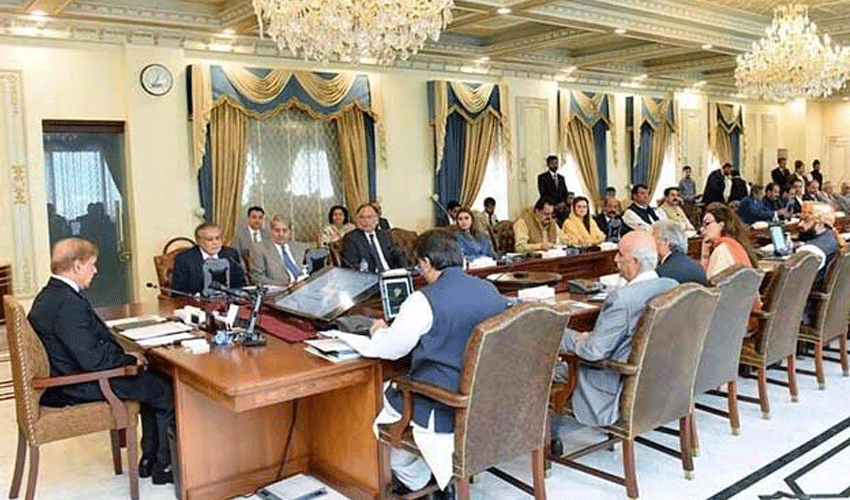Prime Minister Shehbaz Sharif on Wednesday expressed gratitude to Chief of Army Staff (COAS) General Asim Munir for his crucial role in securing the staff-level agreement with the International Monetary Fund (IMF).
During a federal cabinet meeting, the premier acknowledged the contributions of Finance Minister Muhammad Aurangzeb, Secretary Finance, Deputy Prime Minister Ishaq Dar, and Minister for Planning Ahsan Iqbal, who is currently observing I’tikaf in Madina.
He emphasized that the Army Chief played a pivotal role in the negotiations, ensuring Pakistan swiftly met the IMF’s conditions.
The premier also extended condolences on behalf of the cabinet to General Munir on the passing of his mother, praying for her eternal peace.
IMF Agreement and Economic Reforms
PM Shehbaz announced that Pakistan had successfully secured a $2.3 billion financial package from the IMF, including a $1.3 billion climate resilience program under the Resilience and Sustainability Facility (RSF).
This increases the total IMF package from $7 billion to $8.3 billion, demonstrating Pakistan’s commitment to economic reforms.
Shehbaz Sharif addressed criticism from the opposition regarding the agreement, rejecting claims of an impending mini-budget.
He stated that tough economic decisions were necessary to stabilize the country, adding that provinces also played a pivotal role in implementing reforms, particularly the passage of the agricultural tax, which was first approved by Punjab and later adopted by other provinces.
He highlighted Pakistan’s record-breaking tax collection, noting that revenue collection increased by 26% last year, surpassing IMF targets. He revealed that the tax-to-GDP ratio, previously at 9%, had now risen to 10%, with the goal of reaching 12.9 trillion rupees this year.
Challenges of Inflation, Terrorism, and Economic Reforms
PM Shehbaz acknowledged the hardships faced by the people, stating that inflation and terrorism remain major challenges in two provinces.
He emphasized that economic recovery requires peace and stability, vowing to continue efforts to counter terrorism.
He also discussed government initiatives, including the digitization of the Federal Board of Revenue (FBR) and the establishment of professional tribunals to ensure transparency in tax collection.
He lauded the new taxation mechanism, which helped collect a record Rs 34 billion in revenue, while efforts to curb tax evasion in the sugar sector yielded an additional Rs 12 billion in just three months.
The Prime Minister stressed the need for a new economic mindset, stating, “Nations are built by contributions, not by taking loans.” He criticized lavish expenditures abroad while avoiding taxes at home, calling for a culture of financial responsibility.
Shehbaz Sharif also mentioned the success of the Ramadan Digital Wallet, which disbursed Rs 20 billion, with 60% of funds already utilized to support underprivileged families.
He concluded his address by invoking the legacy of Zulfikar Ali Bhutto, recalling his contributions to Pakistan’s nuclear program. The Prime Minister reaffirmed his government’s commitment to economic stability and national security, stressing that sacrifices are necessary to achieve sustainable progress.



